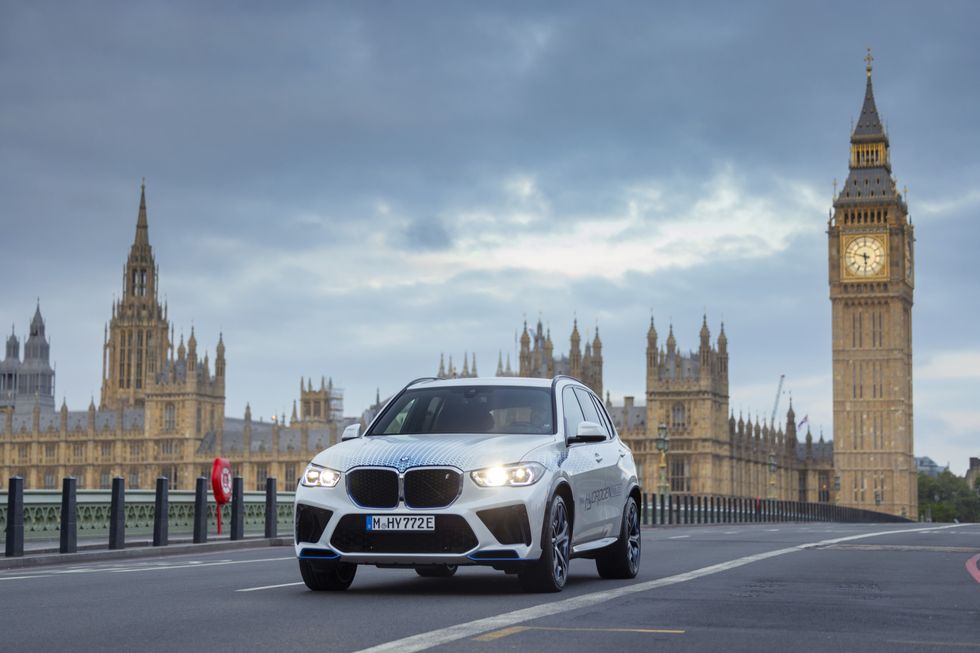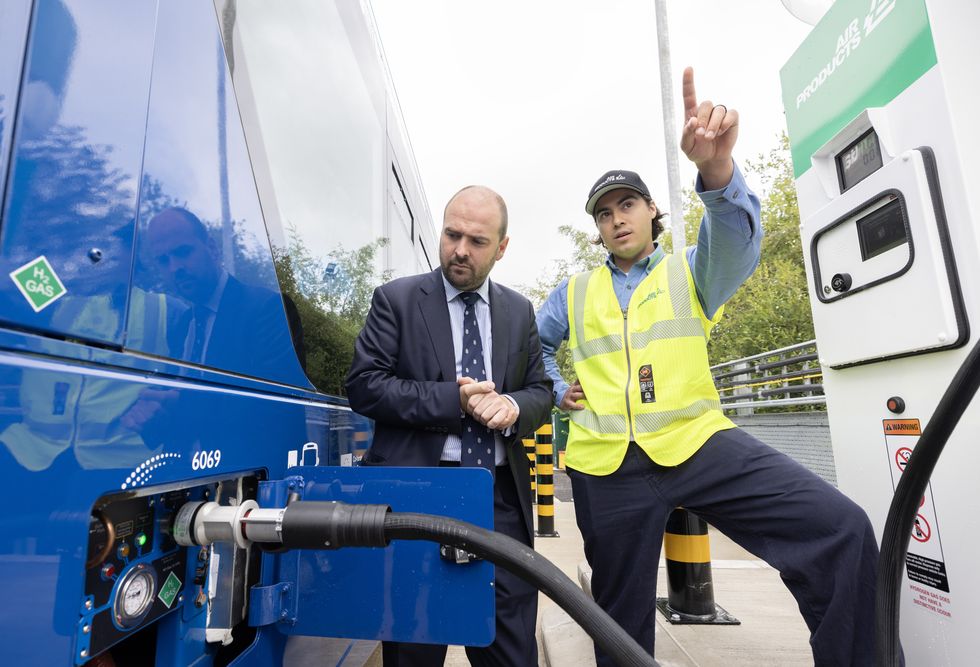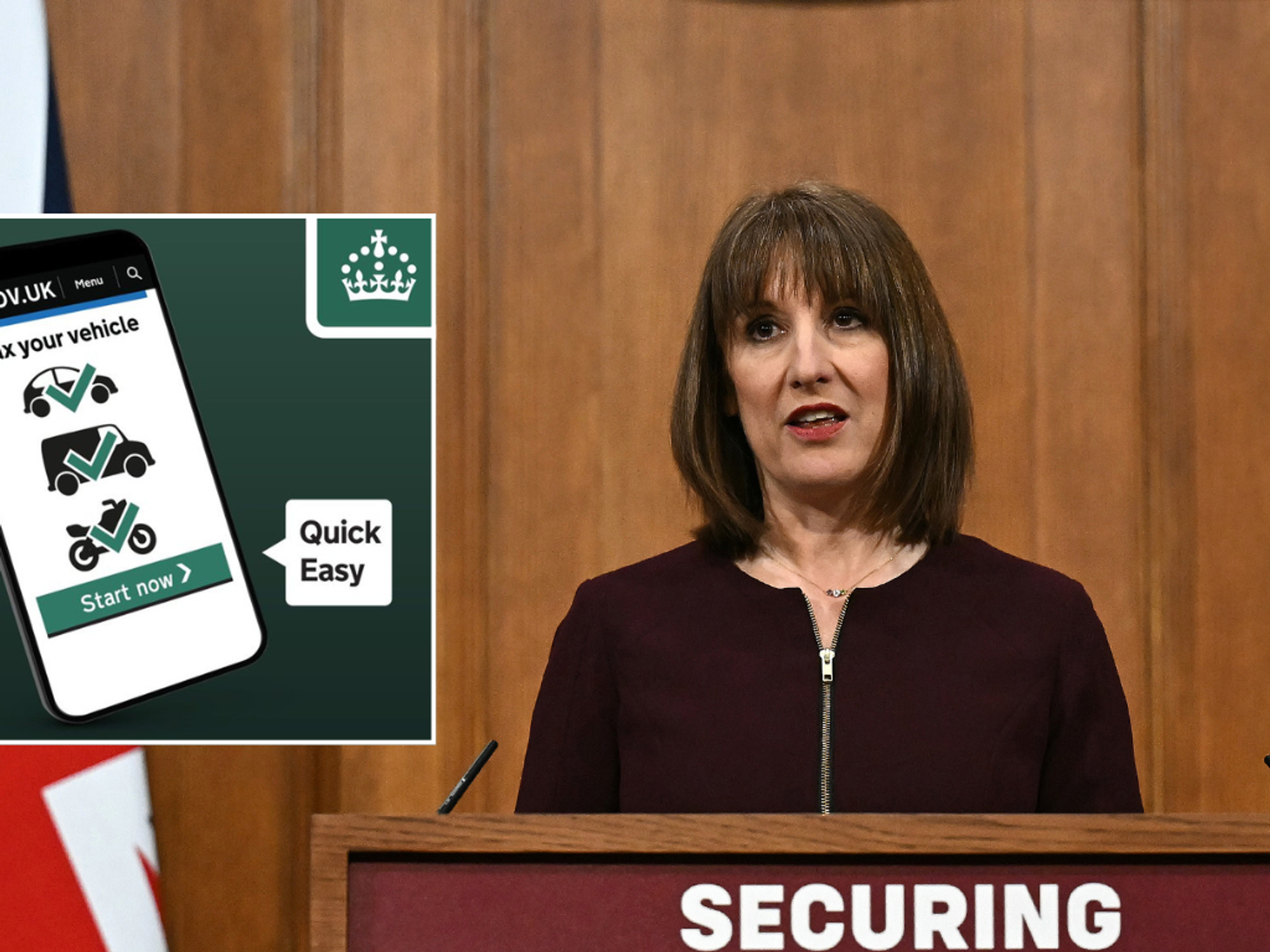A number of major car brands have already unveiled hydrogen vehicles ready for the market
Don't Miss
Most Read
Trending on GB News
Major car brands are having to make huge decisions in the coming months and years over the vehicles they produce to prepare for net zero targets being introduced in the near future.
New petrol and diesel cars and vans will be banned in 2035 in most major economies while some nations target a phase out by the end of this decade.
Electric vehicles are already growing in numbers, with more than one million on UK roads and an estimated 11.8 million across Europe, with expectations for this number to grow massively before the end of the decade.
While some issues still remain for consumers, like the high upfront costs and charging difficulties, they remain the most likely answer to achieving net zero emissions targets.
Do you have a story you'd like to share? Get in touch by emailingmotoring@gbnews.uk
 BMW ix5 Hydrogen vehicle driving in London during testing
BMW ix5 Hydrogen vehicle driving in London during testing BMW
There are, however, a handful of alternatives. Some drivers opt for Liquefied Petroleum Gas (LPG) or even Liquefied Natural Gas (LNG), although this remains a moonshot target for passenger cars.
Several manufacturers have hedged their bets on electric while also firmly committing to hydrogen fuel cell technology, including Toyota and Hyundai.
Hydrogen vehicles are not totally uncommon. According to the Government, there are around 265 fuel cell-powered cars, vans, buses and trucks on UK roads, with eight publicly accessible refuelling stations.
Rishi Sunak has even supported the use of the new fuel. During Prime Minister’s Questions in October, Sunak said the UK remains “one of the best locations in the world” for automotive manufacturing, with some schemes already in place for hydrogen vehicle technology.
Siobhan Baillie, Conservative MP for Stroud, has been one of the biggest backers of hydrogen vehicle technology, given her constituency’s connection to Borg Warner and the Renewable Hydrogen Alliance.
Outside of the Government, major brands are working to support the uptake of these vehicles for individual drivers and businesses who will benefit from zero emissions while still travelling long distances, without needing to wait for long waiting times for refuelling.
Inoue Katsushi, President of Honda Motor Europe, said hydrogen vehicles would be the most common vehicle type after the electric car boom, adding that the brand will be competitive in the fuel cell race.
Similarly, BMW has unveiled plans to roll out the iX5 Hydrogen, which could see a full launch before 2030. The first vehicles have already been seen on UK roads, although they are limited to a pilot fleet of 100 vehicles. But it shows a clear appetite for fuel cell technology.
The UK will continue its historic manufacturing prowess with Toyota’s new Hilux pick-up truck. While plans are in its infancy, the prototype was described as a “milestone” and is expected to be built at the Japanese brand’s Burnaston car plant in Derby.
Despite the optimism around hydrogen fuel cell technology, no one can pretend they are a fully-fledged solution just yet. As mentioned, there are only eight refuelling stations available for drivers, which is simply not enough for a connected network.
Small measures have been put forward by private companies to make hydrogen more attractive including BPs pledge to join the H2Accelerate collaboration and support the installation of refuelling stations across the UK and Europe.
Shropshire Council has also taken action to support hydrogen vehicles with its plan to develop a hydrogen facility in Shrewsbury that is suitably connected to the key transport routes via the A5 international transport corridor.
LATEST DEVELOPMENTS:
- Major law changes for self-driving cars hit a roadblock as MPs warn the vehicles could 'destroy jobs'
- M25 closure: Drivers warned of traffic chaos with all lanes of major motorway shutting for first time ever
- Jaguar to end production of petrol and diesel vehicles as it moves to 'next-generation electric models'

Richard Holden at the launch of a fleet of 20 hydrogen fuel cell buses
PA
Chancellor Jeremy Hunt will unveil the Budget today and little has been said about the potential for new hydrogen measures. While this doesn’t mean the hydrogen dreams of the nation are dead, it could act as the perfect time to announce new funding to confirm the UK’s place at the head of the vehicle manufacturing table.
Some will call for hydrogen vehicle technology to get the same level of funding as electric vehicles, although this is highly unlikely. It remains an emerging technology and although it may be absolutely crucial in the coming years, there needs to be more investment and support before zero emission vehicles get the green light.









